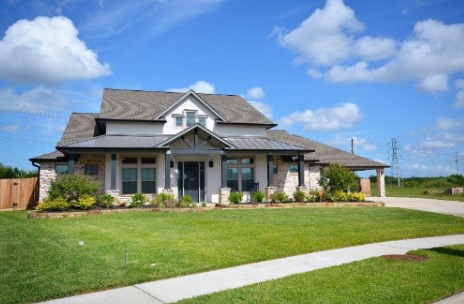Navigating the real estate market can be daunting, but for savvy investors and homebuyers, probate sale properties present a unique opportunity to acquire probate sale real estate at potentially attractive prices. Whether you’re new to the game or a seasoned investor, understanding probate sales and the subtleties involved in purchasing these properties is essential to optimizing your investment potential.
Understanding Probate Sales: What Makes Them Unique?
Probate sales are unique in that the sale of the property can be influenced by factors that wouldn’t be present in a standard real estate transaction. The sale process is typically set in motion by the executor or personal representative of the decedent’s estate. Before the sale takes place, the court will evaluate the property’s value to ensure that the decedent’s debts can be satisfied while distributing any remaining assets to beneficiaries.
Understanding the importance of probate court involvement and the impact it has on the sale process is crucial for those wanting to invest in such opportunities. Additionally, probate sales often have motivated sellers, which can translate to favorable terms for buyers.
The Benefits and Risks of Probate Sale Real Estate
Before you decide to invest in a probate property, it’s important to weigh the associated benefits and risks.
Benefits:
- Potential for Undermarket Prices: As probate sales often involve motivated sellers, there is a chance to purchase the property below its market value.
- Reduced Competition: The stringent legal process and the unique nature of probate sales can deter many buyers, leading to less competition for the properties.
- Flexible Purchase Terms: Because the sale is court-regulated, buyers might find more flexible terms that can be negotiated.
- Streamlined Closing Process: While the sale process can be more lengthy and complex, the closing process is usually streamlined due to court supervision.
Risks:
- Complex Legal Process: The involvement of the court and the legal complexities of probate sales can lead to a more time-consuming and intricate purchase.
- Property Condition Uncertainty: Buyers may not have as much information about the property’s condition or history as they would with a traditional sale, potentially leading to unforeseen issues.
- Delayed Sale Process: The court’s oversight can lead to delays in the sale that are outside of the buyer’s or seller’s control.
- Title Issues and Liens: Clearing the title can be more complicated with a probate sale, as there may be unknown claims or liens against the property.
The Probate Sale Process Step by Step
Understanding the sale process is critical as it can help you ensure you’re fully prepared to make a successful purchase.
Step 1: Initial Research and Due Diligence
Start by identifying probate properties of interest, possibly through a real estate agent or specialized probate real estate service. Once you’ve found a property, conduct thorough due diligence to understand its condition, history, and market value.
Step 2: Making an Offer
With a solid understanding of the property, you can proceed to make an offer. This offer will be presented to the executor of the estate and ultimately to the probate court for approval.
Step 3: The Overbid Process
In some cases, the court may require an overbid process. This means that once you’ve made an offer, other potential buyers can submit higher bids, which may be considered in court before the final sale is authorized.
Step 4: The Court Confirmation Hearing
If the court decides that the highest offer is acceptable, a court confirmation hearing will be scheduled. This is when the sale will be finalized, and the terms of the purchase will be detailed.
Step 5: Conducting Inspections and Finalizing Financing
After the court approval, you’ll have a window to conduct any necessary inspections and secure financing. An experienced real estate lawyer or agent should guide you through this phase to ensure compliance with the court’s requirements.
Step 6: Closing
Once all conditions are met, you’ll close the sale. This typically involves appearing before the court with the necessary documentation to finalize the purchase.
Financing a Probate Property Purchase
Financing a probate property purchase may be more complicated than a traditional purchase. It’s important to work with a lender who has experience in probate sale real estate transactions to ensure you can secure the necessary financing.
Options for Financing a Probate Purchase
- Traditional Mortgages: https://greinerlawcorp.com lenders offer mortgages for probate properties, but expect a more stringent approval process.
- Private and Hard Money Lenders: These lenders may be more willing to provide financing for probate purchases due to the private nature of the transactions.
- Self-Financing: If possible, paying in cash can simplify the purchase process and make your offer more competitive.
Avoiding Common Pitfalls in Probate Sale Investments
With the potential for higher returns comes a greater risk of pitfalls. Here are some of the most common issues investors should be aware of:
Incomplete Due Diligence
Rushing through due diligence can leave you unaware of potential issues with the property, title, or sale process. Take your time and work with professionals to uncover any hidden problems.
Misjudging Renovation Costs
Underestimating the costs of repairing or renovating a property can quickly erode any potential profits. Always factor in a buffer for unforeseen expenses.
Ignoring Legal Counsel
A real estate attorney who understands the intricacies of probate sale real estate is not just a valuable asset — they’re a necessity.
Overlooking Tax Implications
Property acquired through probate may have different tax implications than a standard purchase. Understanding these can prevent significant surprises but come tax time.
The Final Word: Is a Probate Sale Right for You?
Probate sales can be a lucrative investment for the right buyer. https://greinerlawcorp.com/what-is-a-probate-sale-in-real-estate but offer the potential for acquiring real estate at below-market prices in a less competitive environment. However, these sales come with heightened legal and procedural complexities that require time, expertise, and sometimes patience to overcome.
If you’re willing to invest the effort and seek out but professional guidance. Probate sales can be a strategic addition to your real estate investment portfolio. But Approach each potential purchase with meticulous attention to the unique aspects involved in probate transactions. You’ll be better positioned to make informed decisions that can lead to successful investment ventures.

